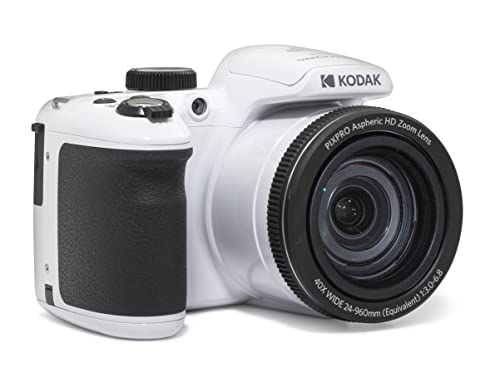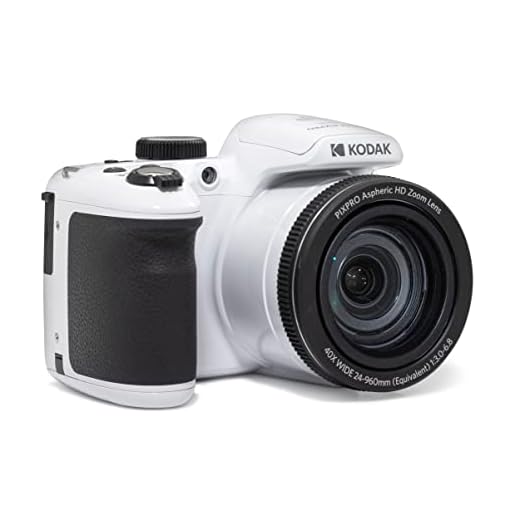




Digital cameras have revolutionized the way we capture and share moments in our lives. With their advanced technology and convenience, they offer numerous advantages over traditional film cameras.
One of the key advantages of digital cameras is the ability to instantly view and delete photos, allowing for immediate feedback and the opportunity to retake shots if needed. Additionally, digital cameras offer a wide range of features such as image stabilization, face detection, and various shooting modes that enhance the quality of photos.
On the other hand, digital cameras also have their disadvantages. One major drawback is the reliance on batteries, which can run out at crucial moments. Furthermore, the initial cost of purchasing a digital camera and accessories can be higher than film cameras, and the constant evolution of technology may render older models obsolete.
Despite these drawbacks, the convenience and flexibility of digital cameras make them a popular choice for photographers of all levels. With the ability to instantly share photos online and edit images with software, digital cameras have become an essential tool for capturing memories in the digital age.
Definition and Functionality
A digital camera is a device that captures and stores photographs in digital format. It uses electronic sensors to convert light into digital data, allowing users to view and edit images on a screen before deciding to print or share them. Digital cameras offer various features such as autofocus, zoom capabilities, image stabilization, and different shooting modes to enhance the quality of photos.
Advantages of Digital Cameras
Digital cameras offer a range of advantages over traditional film cameras. Some of the key benefits include:
1. Instant Viewing and Editing
With digital cameras, you can instantly view the photos you have taken on the camera’s screen. This allows you to quickly assess the quality of the image and make any necessary adjustments on the spot. Additionally, digital photos can be easily edited using software on a computer, giving you more control over the final image.
2. Cost-Effective
While the initial cost of a digital camera may be higher than a film camera, the long-term costs are significantly lower. Digital cameras eliminate the need for film and processing, saving you money in the long run. You can also reuse memory cards and batteries, further reducing ongoing expenses.
| 3. Convenience | Digital cameras are compact and lightweight, making them easy to carry around and use on-the-go. They also offer features such as automatic shooting modes and built-in flash, making them user-friendly for beginners. |
High-Quality Images
One of the key advantages of digital cameras is their ability to capture high-quality images. Digital cameras offer higher resolution and sharper detail compared to traditional film cameras. This allows photographers to capture intricate details and vibrant colors with clarity.
Advantages:
| 1. Resolution: | Digital cameras can capture images with high resolution, allowing for larger prints without losing quality. |
| 2. Image Control: | Photographers have greater control over settings such as ISO, aperture, and shutter speed to enhance image quality. |
Disadvantages:
While digital cameras offer high-quality images, they can be more prone to noise in low-light conditions and may require post-processing for optimal results.
Benefits of Using a Digital Camera
There are several advantages to using a digital camera over a traditional film camera. Some of the key benefits include:
| Instant Preview: | With a digital camera, you can instantly preview the photos you have taken on the camera’s LCD screen. This allows you to see if the shot turned out the way you wanted and make adjustments as needed. |
| Easy Sharing: | Digital cameras make it easy to share your photos with others. You can quickly transfer images to your computer or mobile device and share them through email, social media, or online galleries. |
| Cost-Effective: | While the initial cost of a digital camera may be higher than a film camera, digital photography is more cost-effective in the long run. You don’t have to buy film or pay for processing, making each shot essentially free. |
| Editing Options: | Digital photos can be easily edited using software tools to enhance colors, crop images, remove imperfections, and more. This flexibility allows you to create professional-looking photos without the need for a darkroom. |
| Convenience: | With digital cameras, you can take hundreds of photos without worrying about running out of film. They are also more compact and lighter than traditional cameras, making them easier to carry around and use on the go. |
Convenience and Portability
One of the significant advantages of digital cameras is their convenience and portability. Digital cameras are compact and lightweight, making them easy to carry around for everyday use or travel. Unlike traditional film cameras, digital cameras do not require cumbersome rolls of film or additional equipment like a darkroom for processing. This convenience allows users to capture moments on the go without any hassle.
Additionally, digital cameras offer instant gratification by allowing users to review and edit photos immediately after taking them. This feature enables photographers to adjust settings, crop images, and delete unwanted shots on the spot, saving time and effort in the post-processing stage.
However, the portability of digital cameras can also be a disadvantage in some cases. While compact and lightweight, digital cameras may lack the robustness and durability of professional DSLR cameras, limiting their performance in challenging shooting conditions or extreme environments. Furthermore, the small size of digital cameras may make them easier to misplace or damage compared to larger, bulkier cameras.
Disadvantages of Digital Cameras
Despite their numerous advantages, digital cameras also have some drawbacks that users should be aware of:
| 1. | Cost: | Digital cameras can be expensive, especially high-end models with advanced features. |
| 2. | Battery Life: | Digital cameras require power to operate, and battery life can be a limitation, especially when traveling or shooting for extended periods. |
| 3. | Image Quality: | Some users may find that digital cameras produce images that lack the warmth and depth of film photography. |
| 4. | Complexity: | Advanced digital cameras come with a steep learning curve, requiring users to understand settings, modes, and editing software. |
| 5. | Storage Space: | High-resolution images and videos can quickly fill up memory cards, requiring additional storage solutions. |
Cost and Maintenance
One of the key advantages of digital cameras is their decreasing cost over time. As technology advances, the price of digital cameras has been steadily decreasing, making them more accessible to a wider range of consumers. Additionally, the cost of digital storage media, such as memory cards, has also decreased, allowing users to store more photos at a lower cost.
However, one of the disadvantages of digital cameras is the need for regular maintenance. Like any electronic device, digital cameras require occasional maintenance to ensure they function properly. This may include cleaning the lens, updating firmware, and checking for any software updates. Failure to properly maintain a digital camera can lead to decreased performance and potentially costly repairs.
Factors to Consider Before Buying a Digital Camera
1. Resolution: Check the camera’s resolution to ensure it meets your needs for sharp and clear images.
2. Sensor Size: Larger sensors typically produce better image quality, especially in low light conditions.
3. Zoom Range: Consider the optical zoom range for capturing distant subjects without losing image quality.
4. Size and Weight: Choose a camera that is comfortable to hold and carry around based on your preferences.
5. Battery Life: Look for cameras with long battery life to avoid running out of power during important moments.
6. Connectivity: Check if the camera offers Wi-Fi or Bluetooth connectivity for easy sharing and transferring of photos.
7. Features: Evaluate the camera’s features such as in-camera editing, image stabilization, and shooting modes to suit your photography style.
8. Brand and Reviews: Research the brand reputation and read reviews from other users to ensure quality and reliability.
Resolution and Sensor Size
One of the main advantages of digital cameras is their ability to capture high-resolution images. The resolution of a digital camera is measured in megapixels, which determines the level of detail in the images it produces. Higher resolution cameras can capture more detail and produce clearer, sharper images.
The sensor size of a digital camera also plays a crucial role in image quality. Larger sensors generally produce better image quality, especially in low-light conditions, as they can capture more light and detail. Cameras with larger sensors tend to have better dynamic range and produce images with less noise.
Comparison Between Digital and Film Cameras
When comparing digital and film cameras, there are several key differences to consider:
- Image Quality: Digital cameras offer instant gratification with the ability to view and edit photos immediately, while film cameras require developing before seeing the results.
- Cost: Digital cameras have a higher upfront cost but save money in the long run as there is no need to purchase film or pay for developing.
- Convenience: Digital cameras are more convenient as they allow for easy sharing and storing of photos, while film cameras require physical film rolls and storage.
- Flexibility: Digital cameras offer a wide range of settings and options for customization, while film cameras have a more traditional and manual approach.
- Sustainability: Digital cameras are more environmentally friendly as they eliminate the need for disposable film rolls and chemicals used in developing.
FAQ
How does a digital camera differ from a film camera?
A digital camera captures images electronically on a digital sensor, while a film camera captures images on light-sensitive film. Digital cameras allow for instant preview, editing, and sharing of photos, while film cameras require developing the film to view the images.
Can I use a digital camera for professional photography?
Yes, many professional photographers use digital cameras for their work. High-end digital cameras offer excellent image quality, manual controls, and interchangeable lenses, making them suitable for professional use. However, the choice of camera depends on the specific needs and preferences of the photographer.









